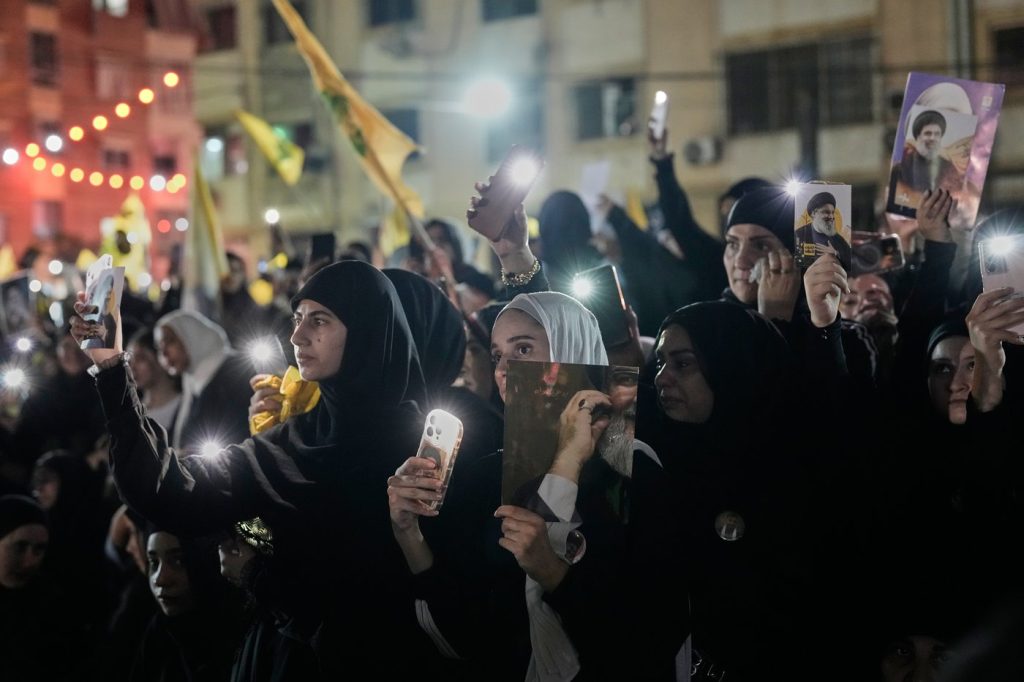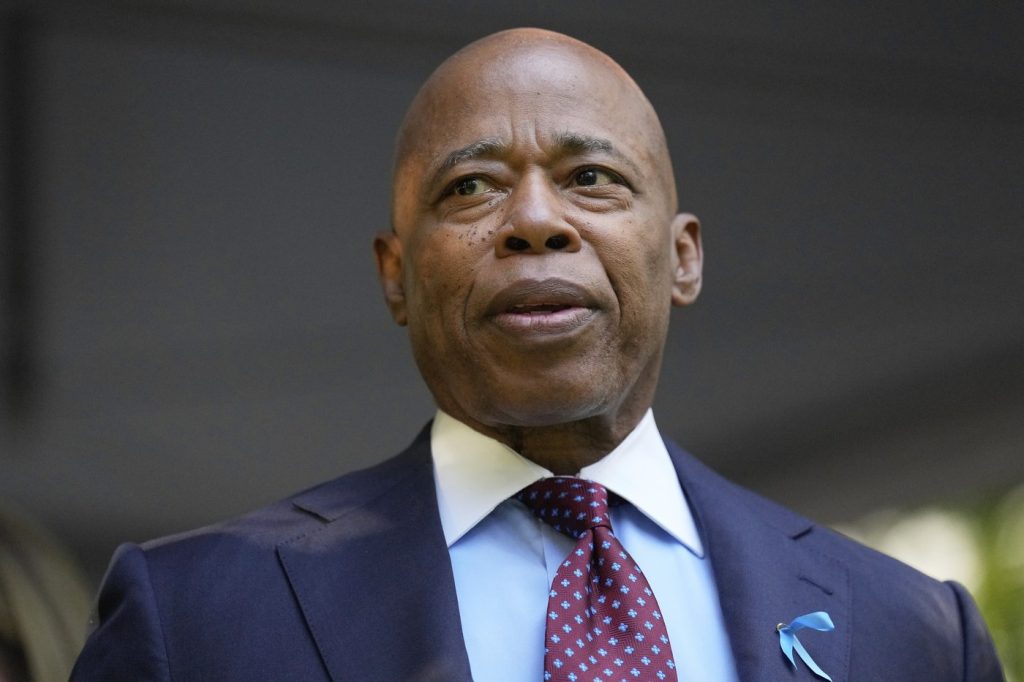BEIRUT (AP) - Following a devastating war with Israel, Hezbollah has faced significant losses, including the assassination of its long-time leader, Hassan Nasrallah, in massive airstrikes on a Beirut suburb. The conflict, which concluded in late 2023, marked a substantial weakening of Hezbollah’s military and political prowess, leading many critics to assert that the group’s dominance in the region has unraveled.
One year later, however, consensus among supporters, adversaries, and analysts indicates that Hezbollah is in a period of regrouping. Mohammed Fneish, a senior political official within Hezbollah, remarked ahead of the anniversary of Nasrallah's death, acknowledging the severe impact of the loss of leadership but emphasizing the group’s resilience. “Hezbollah is not a party in the usual sense that when it loses its leader, the party becomes weak,” Fneish stated, highlighting the organization’s capacity to rapidly replace its lost leadership while continuing its confrontational agenda.
An Israeli military official has noted a considerable decline in Hezbollah’s influence, claiming that the likelihood of a large-scale attack against Israel is low. Nonetheless, the statement confirmed that Hezbollah is actively working to rebuild its capabilities, albeit amidst limited resources. The specifics of Hezbollah's remaining arsenal of missiles and drones are not disclosed by Israeli military sources.
Despite the challenges it faced, including a U.S.-brokered ceasefire that ended hostilities in late November, Hezbollah continued to resist when Israeli troops invaded southern Lebanon last October. After this conflict, Israel expanded its territorial control, and has routinely conducted airstrikes targeting Hezbollah to unsettle the group further. The loss of critical supply routes from Iran, especially following the fall of Bashar Assad’s government in Syria in December, has posed additional strategic setbacks for Hezbollah.
The Lebanese government has recently committed to disarm Hezbollah by the end of the year, a stipulation linked to U.S. and Saudi funding for reconstruction. Hezbollah has firmly opposed these disarmament efforts, prompting political adversaries to accuse the group of being out of touch with its diminishing power. Elias Hankash, a vocal critic, lamented, “Hezbollah’s leadership is detached from reality,” asserting that the group failed to safeguard its constituents. On the contrary, U.S. envoy Tom Barrack warned against underestimating Hezbollah's tactical rehabilitation, indicating that the group is gradually regaining its strength.
The group's financial situation appears stable, according to Fneish, who described its financial status as “normal,” despite the Israeli military official claiming Hezbollah struggles for funds from Iran. Barrack estimates that the group may receive as much as $60 million per month from unidentified sources, despite global attempts to curb its financing, which includes flight bans from Iran.
Hezbollah, formed in 1982 in response to the Israeli invasion of Lebanon, has evolved into a formidable force through decades of conflict, culminating in its recent wars with Israel. Following the October 7, 2023, Hamas-led attack on Israel, Hezbollah initiated rocket fire into Israeli territories, positioning itself as a supporting actor in the regional conflict. Israel, reacting decisively, commenced substantial airstrikes that targeted Hezbollah's leadership, ultimately resulting in Nasrallah's death on September 27, 2024.
Subsequent to Nasrallah’s assassination, Hezbollah's military structure faced further threats, with the death of his successor, Hashem Safieddine, in subsequent airstrikes. The group appointed deputy Naim Kassem as the new leader, though he is perceived as lacking Nasrallah's magnetic leadership qualities. Analysts suggest that while the organization experiences turmoil over leadership transitions, its foundational identity remains intact, bolstered by an entrenched culture fostered by martyrdom.
In the aftermath of these events, Hezbollah’s military operations have covertly progressed as the group adapted its strategy to close gaps in intelligence that led to successful Israeli strikes. Notably, Hezbollah has tethered its communications technology due to infiltration threats. They’ve recently detained individuals suspected of cooperating with Israeli intelligence efforts to gather information about the group's leaders.
The Lebanese population contends with a complicated relationship with Hezbollah's armament. Pressure mounts to disarm the group amidst reconstruction delays, causing discontent within its largely Shiite support base. This dissatisfaction has manifested in municipal election victories for Hezbollah and its allies in strongholds. A growing sentiment from some community members who initially supported disarmament is now shifting back towards the necessity of retaining weapons, signaling a broader desire for security against potential Israeli aggression.
As the Lebanese state grapples with the disarmament of Hezbollah, it finds itself ensnared in a predicament; weakened by financial constraints, the Lebanese army lacks the capacity to contend with a well-trained Hezbollah force, which leads to uncertainty regarding the future trajectory of this contentious issue.












